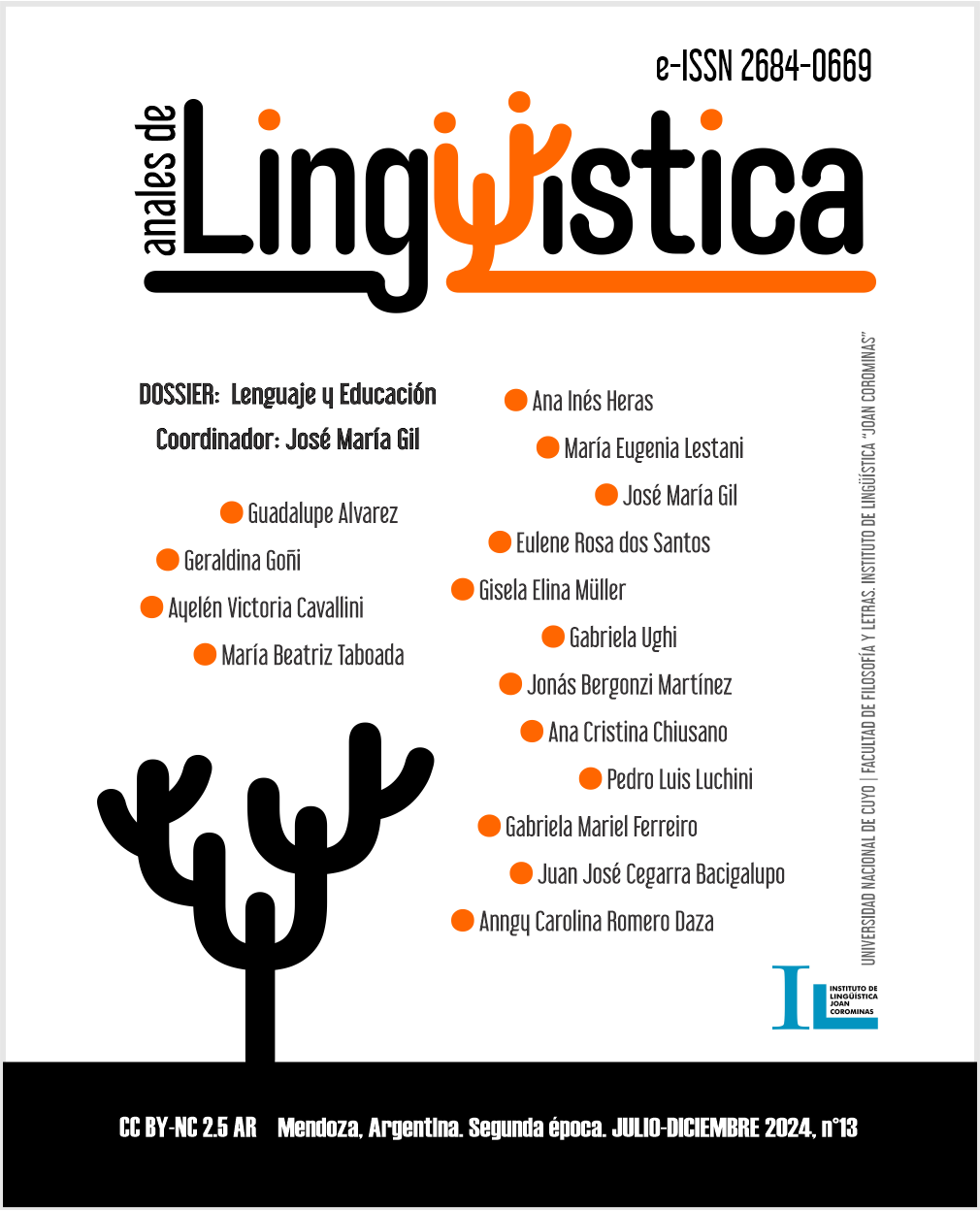Bridging the gap
From language to culture, an intercultural journey
DOI:
https://doi.org/10.48162/rev.57.011Keywords:
intercultural sensitivity, intercultural communicative competence, language immersion, cultural diversity, modern language teachingAbstract
The purpose of this exploratory research is to analyze the affective aspects related to intercultural sensitivity and intercultural communicative competence in a group of 14 Argentine secondary school students. These students participated in a two-week language immersion program in London, aiming to improve their English proficiency. During their stay at a London school, they were immersed in an environment where English was the primary means of communication, interacting with people from various nationalities. Upon returning to Argentina, the participants completed an intercultural sensitivity scale, adapted from studies by Fritz et al. (2002) and Vilá Baños (2006), which assessed their emotions and impressions while experiencing different intercultural situations. The scale specifically measured intercultural sensitivity, exploring aspects such as the enjoyment of cultural differences or interactions with people from different backgrounds, the preference for or rejection of working with people from other cultures, and respect for different cultural behaviors. Data analysis revealed educational needs regarding the students’ intercultural competencies and sensitivity, broadening our understanding of how exposure to intercultural contexts can influence the emotional sphere. Indeed, the information gathered encourages rethinking pedagogical strategies that consider and address these needs. The study concludes with recommendations and suggestions for future research in this field.
References
ATLAS.ti Scientific Software Development GmbH. (2023). ATLAS.ti Mac (versión 23.2.1) [Software de análisis de datos cualitativos]. https://atlasti.com
Bennett, M. J. (2012). A Developmental Model of Intercultural Sensitivity. In Education for the Intercultural Experience (pp. 21-71). Nicholas Brealey Publishing. https://doi.org/10.1002/9781118783665.ieicc0182
Bennett, M. (2013). Basic Concepts of Intercultural Communication: Paradigms, Principles & Practices. Intercultural Press.
Berardo, E., Salazar, C., & Sardegna, V. G. (2023). Telecollaborating in Secondary Language Classrooms: Global Partners Making it Work. Paper presented at the TESOL 2023 International Convention & English Language Expo.
Byram, M. (1997). Teaching and Assessing Intercultural Communicative Competence. Multilingual Matters.
Byram, M. (2021). Teaching and Assessing Intercultural Communicative Competence Revisited. Multilingual Matters.
Chen, G. M., & Starosta, W. J. (1996). Intercultural Communication Competence: A synthesis. Communication Yearbook, 19, 353-383.
Chen, G. M., & Starosta, W. J. (2000). The Development and Validation of the Intercultural Communication Sensitivity Scale. Human Communication, 3(1), 1-15.
Fritz, W., Möllenberg, A., & Chen, G. M. (2002). Measuring Intercultural Sensitivity in Different Cultural Contexts. Intercultural Communication Studies, 11(2), 165-176.
Godwin-Jones, R. (2019). Telecollaboration as an Approach to Developing Intercultural Communication Competence. Language Learning & Technology, 23(3), 8-28. http://hdl.handle.net/10125/44691
Sardegna, V. G., & Dugartsyrenova, V. A. (2021). Facilitating Pre-Service Language Teachers’ Intercultural Learning via Voice-Based Telecollaboration: The Role of Discussion Questions. Computer Assisted Language Learning, 34(3), 379-407. https://doi.org/10.1080/09588221.2020.1871028
Downloads
Published
How to Cite
Issue
Section
License
Copyright (c) 2024 Pedro Luis Luchini, Gabriela Ferreiro
Esta obra está bajo una Licencia Creative Commons Atribución 2.5 Argentina.
Los/as autores/as que publican en esta revista están de acuerdo con los siguientes términos:
1. Los/as autores conservan los derechos de autor y garantizan a la revista el derecho de ser la primera publicación del trabajo bajo una licecncia Creative Commons Atribución 2.5 Argentina (CC BY 2.5 AR) . Por esto pueden compartir el trabajo con la referencia explícita de la publicación original en esta revista.
2. Anales de lingüística permite y anima a los autores a difundir la publicación realizada electrónicamente, a través de su enlace y/o de la versión postprint del archivo descargado de forma independiente.
3. Usted es libre de:
Compartir — copiar y redistribuir el material en cualquier medio o formato
Adaptar — remezclar, transformar y construir a partir del material para cualquier propósito, incluso comercialmente.






